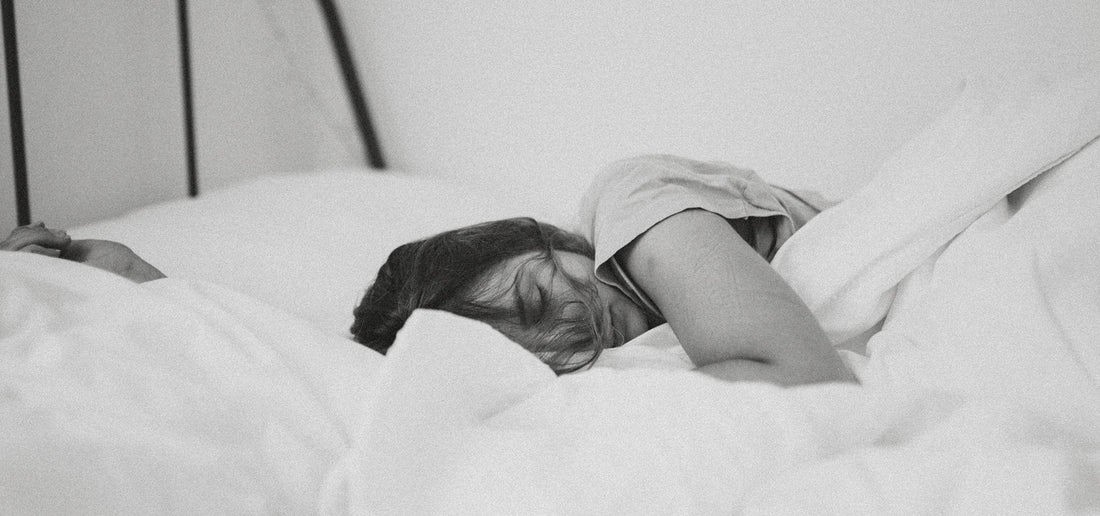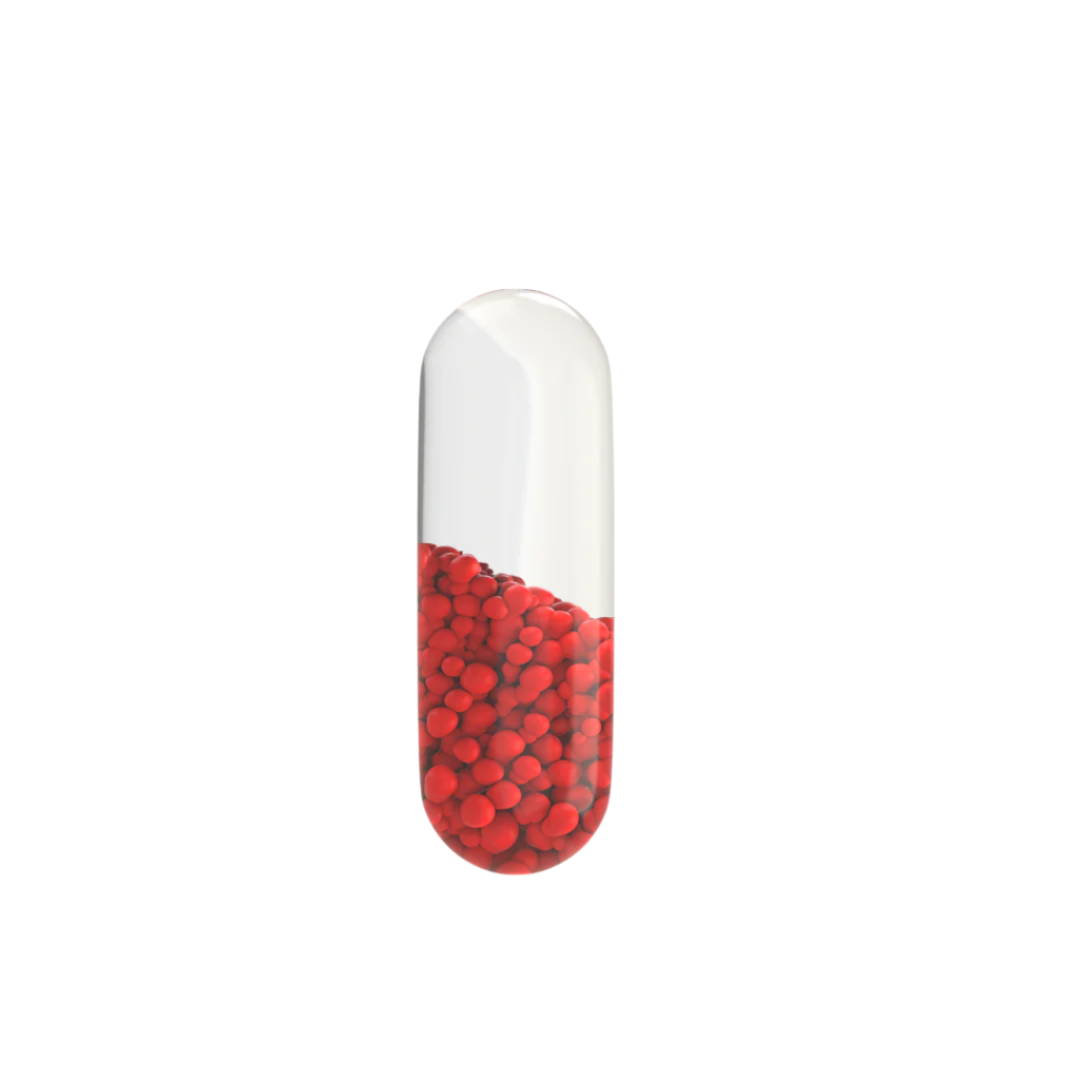How to sleep well

It’s recommended that adults get 7 to 9 hours1 of normal sleep per day. This can be difficult for many due to stress, anxiety, work commitments and a host of other possible factors. A survey conducted in 2019 found that 62% of adults struggle to sleep well and manage only 6.8 hours per night.2 The onset of Covid-19 has significantly impacted these numbers, with people in the UK now spending 18 minutes more on work and 23 minutes less on sleep per day.3
Unfortunately, sleep loss is associated with various health risks and a detrimental impact on general wellbeing.4 Milder symptoms include feeling tired, short-tempered, and struggling to concentrate the next day. On the other hand, chronic sleep loss is associated with more serious medical conditions and health problems like decreased immunity, diabetes, high blood pressure, heart disease, and depression.5
So what can you do to develop good sleep hygiene and get a good night’s sleep? We suggest focusing on your:
- sleep environment
- sleep routine
- sleep habits
Sleep environment
Sleep time and quality are impacted by environmental factors such as bright lights or loud sounds.6 You therefore want to make sure the conditions of your bedroom are conducive to you relaxing and comfortably falling asleep. Here are some tips to keep in mind:
- Invest in a quality mattress, and comfortable pillows and bedding. It’s worth selecting a good mattress that adequately supports your back, rather than one which causes back pain and disrupts your sleep. A review found that medium-firm mattresses are optimal for promoting sleep comfort and spinal alignment.7 Your pillows and bedding also impact your sleep,8 and should be comfortable without making you overly warm.
- Use blackout curtains or an eye mask. Outdoor night-time lights impact our ability to sleep, and are associated with delaying our bedtimes and wake-up times, as well as shortening our sleep duration.9 Furthermore, bright lights affect our circadian rhythms.10 Bearing this in mind, it’s a good idea to ensure your period of sleep is in complete darkness.
- Bring peace and calm to your bedroom. Noises can be disruptive to sleep.11 While it might be impossible to completely eliminate ambient noises, especially if you live in a busy part of a city, try using earplugs or a white-noise machine to muffle loud sounds.
- Don’t set the temperature too high or too low. Naturally, the ideal temperature for falling asleep will vary from person to person. But studies have shown that rapid temperature change or sweating can negatively impact sleep quality.12 The recommended temperature range is between 18C and 24C.13
- Use a mild, calming scent. Aromatherapy can be quite soothing when it comes to falling asleep. Lavender in particular has been found to improve restlessness and disturbed sleep, while having a beneficial influence on health and well-being.14
Sleep routine
A good sleep routine is an important part of good sleep hygiene and can help you sleep better.15 In essence, it involves the following steps:
- Set a fixed time for going to sleep and waking up. This, of course, might not be possible for on-call or shift workers, but the sleep tips listed in this article should still help you. If you find yourself constantly waking up feeling tired or groggy, struggling to concentrate the next day, try B・SYNC ON, a clinically tested supplement that facilitates the waking process..
- Aim for 7-8 hours of sleep. As mentioned before, this is the recommended amount of sleep per day for most adults.16
- Avoid naps after 3 pm. While a short nap under an hour can help with cognitive performance, a late afternoon nap can impact your ability to fall asleep at night.17
- Avoid drastic changes to your sleep schedule. Most people can reset their body clock by 1 to 2 hours, maximum, but it’s still advisable to stick to your sleep schedule when practical, even on weekends.18
- Develop a pre-bedtime routine. This is explored in greater detail in the next section on practising healthy sleep habits. Examples include avoiding looking at an electronic device in bed,19 dimming the lights, having a warm bath, listening to soothing sounds, or drinking herbal tea to gently prepare your body and mind for sleep.
Sleep habits
There are plenty of things you can do in the day and in the run-up to bedtime to help you sleep well. These include:
- Avoid using electronic devices for one to two hours before you go to bed. Most computers, phones, tablets and TVs emit blue light, which negatively affects sleep and the circadian rhythm.20 Blue light can also suppress the production of melatonin, a hormone that helps promote sleep.21
- Avoid caffeine, alcohol, nicotine or any other stimulants before bed. Caffeine blocks adenosine receptors active in your brain that help you fall asleep,22 while alcohol has been found to negatively influence sleep quality.23
- Avoid big meals before bed. They can cause indigestion that potentially disrupts your sleep.24
- Exercise. Daily physical activity has been found to improve sleep quality in adults,25 though it is advisable to refrain from exercising close to bedtime.26 If you are keen to exercise late in the day, avoid workouts and try light exercises like yoga stretches to help your muscles relax.27
- Practice stress management. While this is easier said than done, it can help to mitigate some of the symptoms of stress such as racing thoughts, eating more or less than usual, drinking or smoking more than usual – all of which combine to negatively affect your sleep.28
- Reserve your bedroom for sleep and physical intimacy. We form strong associations between sleep and the bedroom.29 However, these associations can be muddled by performing other stressful activities in the bedroom, which in turn can detrimentally impact our ability to have a good night’s rest.30
- Try clinically-proven supplements. B・SYNC ON is a delayed release wake-up supplement that helps you wake up with ease in the morning without feeling tired or groggy. It has no side effects, though you should consult your GP first if you are taking sleep medicines. It can be taken daily or on demand, and may assist circadian alignment of your internal clock.
What to do if you still can’t fall asleep?
Even if you have excellent sleep hygiene, there may be times when you have trouble sleeping. Try not to toss and turn and force yourself to sleep, as this can have the opposite effect. Step away from your bedroom and perhaps read or practise relaxation techniques like deep breathing and meditation. Keep a sleep diary, as it can be useful to help you detect any underlying conditions impacting your ability to fall asleep.31
If you find that no matter what you do, you’re unable to get enough sleep, then it might be worth seeing your GP. They can advise you on sleep disorders, sleeping problems, and what actions you can take to improve your sleep patterns
If you’re struggling to align your sleep schedule, then click here to learn more about how B • SYNC ON can help.
Sources
- https://www.sciencedirect.com/science/article/abs/pii/S2352721815000157
- https://www.usa.philips.com/c-dam/b2c/master/experience/smartsleep/world-sleep-day/2019/2019-philips-world-sleep-day-survey-results.pdf
- https://www.statista.com/chart/25158/change-in-time-spent-activities-in-lockdowns-gb/
- https://www.nhs.uk/live-well/sleep-and-tiredness/why-lack-of-sleep-is-bad-for-your-health/
- https://pubmed.ncbi.nlm.nih.gov/28477772/
- https://pubmed.ncbi.nlm.nih.gov/30509635/
- https://pubmed.ncbi.nlm.nih.gov/29073401/
- https://pubmed.ncbi.nlm.nih.gov/30509635/
- https://academic.oup.com/sleep/article/39/6/1311/2454030?login=true
- https://link.springer.com/article/10.1007/BF00584704
- https://pubmed.ncbi.nlm.nih.gov/30018067/
- https://pubmed.ncbi.nlm.nih.gov/30509635/
- https://www.nhs.uk/live-well/sleep-and-tiredness/how-to-get-to-sleep/
- https://www.ncbi.nlm.nih.gov/pmc/articles/PMC3612440/
- https://journals.lww.com/nsca-scj/FullText/2013/10000/Sleep,_Recovery,_and_Athletic_Performance___A.8.aspx
- https://www.sciencedirect.com/science/article/abs/pii/S2352721815000157
- https://www.nhlbi.nih.gov/files/docs/public/sleep/healthysleepfs.pdf
- https://www.nhlbi.nih.gov/files/docs/public/sleep/healthysleepfs.pdf
- https://journals.lww.com/nsca-scj/FullText/2013/10000/Sleep,_Recovery,_and_Athletic_Performance___A.8.aspx
- https://www.ncbi.nlm.nih.gov/pmc/articles/PMC4734149/
- https://www.hopkinsmedicine.org/health/wellness-and-prevention/melatonin-for-sleep-does-it-work
- https://www.ncbi.nlm.nih.gov/pmc/articles/PMC6292246/
- https://pubmed.ncbi.nlm.nih.gov/29549064/
- https://www.nhlbi.nih.gov/files/docs/public/sleep/healthysleepfs.pdf
- https://pubmed.ncbi.nlm.nih.gov/28276627/
- https://www.nhlbi.nih.gov/files/docs/public/sleep/healthysleepfs.pdf
- https://www.nhs.uk/live-well/sleep-and-tiredness/how-to-get-to-sleep/
- https://www.nhs.uk/every-mind-matters/mental-health-issues/stress/
- https://www.nhs.uk/live-well/sleep-and-tiredness/how-to-get-to-sleep/
- https://www.nhs.uk/every-mind-matters/mental-health-issues/sleep/
- https://www.nhs.uk/live-well/sleep-and-tiredness/how-to-get-to-sleep/







